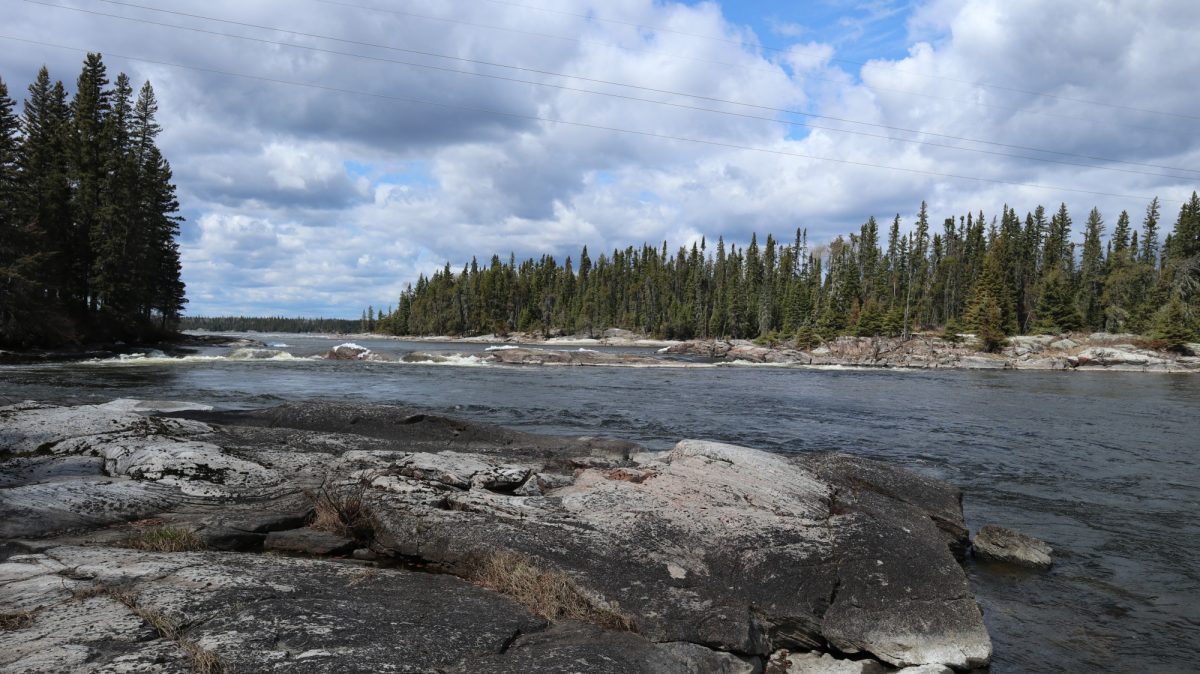
Photo taken in Northern Manitoba
Principles for working in good ways with Indigenous communities
New Lunch and Learn Series begins Jan. 14
Community Engaged Learning is inviting UM staff and faculty members to explore eight principles for working in good ways with Indigenous communities as part a new virtual Lunch and Learn series on Indigenous community engagement, which begins on January 14.
The project was led by Nicki Ferland, a Métis coordinator in Community Engaged Learning (CEL), and contributed to by the entire CEL team and many community and campus partners.
“We don’t think it’s possible to prescribe a step-by-step checklist. Instead, we hope to create a descriptive framework that shares guiding principles and helpful stories,” Ferland says.
Through their community consultations, Ferland says the CEL team heard eight principles for working in good ways with Indigenous communities. The CEL team also learned about important stages of Indigenous community engagement. Doing the work before the work means that you should develop literacy in Indigenous content, engage in critical self-reflection, and build relationships in the community before approaching people about partnerships, says Ferland, who is working on her master’s degree in Indigenous land-based education.
“The principles that are really central to this work include literacy, reflection, relationship, reciprocity, protocol, humility, collaboration, and system change,” Ferland says.
Each of the upcoming Lunch and Learn series will begin with an overview of one of the eight principles for working in good ways, and two other parts of Indigenous community engagement that are often overlooked – assessment and the work before the work. Ferland says it’s a chance to share the stories and teachings they heard from community partners. Lunch and Learn participants will also take part in some interactive exercises and have the chance to ask questions about the principles and practices.
Ferland hopes Lunch and Learn participants will take away new insights about building trust and respect between community engaged learning practitioners and community partners.
Since 2018, Ferland and her team have interviewed close to 100 Indigenous community members and Indigenous and non-Indigenous students and practitioners in Winnipeg, northern Manitoba, Belize, Ecuador and Chile to explore how postsecondary institutions and partners have been developing opportunities for students to learn in and from Indigenous communities.
“Fortunately, we didn’t hear many bad stories; still, people are out there making mistakes that could potentially be avoided,” Ferland says. “But we also heard that mistakes can be valuable learning opportunities for the practitioners doing this work.”
Ferland says CEL is excited to share their findings.
“Those consultations took a long time. Initially it was a three-month project and we’ve been working on it for three years now. It’s morphed into something that we hope practitioners and community partners will find very useful,” she says.
In the spring of 2021, CEL will offer a free downloadable framework guide, Working in Good Ways, as well as related resources, including an online course on Indigenous community engagement.
The Lunch and Learn series will run January 14 to May 20. The sessions will take place on Zoom every second Thursday from 12 noon to 2 p.m. During the first hour, CEL Coordinators will share what they learned from consultations with Indigenous community partners. A community engagement advising hour will follow. Community engaged learning practitioners are welcome to join the whole series or attend on a drop-in basis.
Lunch and Learn Series
Dates: Jan. 14, Jan. 28, Feb. 11, Feb. 25, Mar. 11, Mar. 25, Apr. 8, Apr. 22, May 6, May 20
Zoom Link: https://zoom.us/j/92458540551
Meeting ID: 924 5854 0551
You can visit Community Engaged Learning’s website to learn more about their programming and follow CEL on Facebook and Instagram to keep up to date on events.






